High-profile Asia-Pacific Summits see Lingnan take centre stage
The first, billed as the Pre-Summit APAC 2023 and hosted at Lingnan’s campus on 3 November 2023, was organised in partnership with QS (Quacquarelli Symonds), the global higher education analytics firm.

Drawing a 450-strong audience, a hybrid format gave influential figures from the Asia-Pacific region the opportunity to consider how disciplines traditionally classified within the arts and humanities are going to evolve and what that will mean for universities, students, and the general approach to teaching and learning.
As Professor S. Joe Qin, Lingnan’s President, noted beforehand: “China’s higher education system is experiencing significant development, with an increased emphasis on innovation, entrepreneurship, internationalisation, and student outcomes.”
Therefore, it is essential for forward-looking institutions to show a commitment to change and to foster the type of outlook and partnerships that will be necessary to keep pace with others in the digital era.
Accordingly, the agenda dealt with the latest uses of technology both in and beyond the classroom, as well as specific steps liberal arts universities are now taking in order to adapt and thrive in this new age.

For instance, in a keynote address, Professor Michael Hui, Vice-Rector of Academic Affairs at the University of Macau, emphasised the need to rise to the challenge by integrating the use of technology in all aspects of campus life and promoting greater interdisciplinary collaboration.
“Digital technologies like big data and artificial intelligence are shifting the development pathway of today’s higher education, in particular quality improvement of teaching and learning,” Hui said. “However, to make this happen, professors and students from different traditional disciplines must have some minimal knowledge of these new tools.”

In a subsequent session, a special President’s Forum focusing on “The Art of STEM”, speakers outlined how best to integrate scientific thinking into a liberal arts curriculum and generally agreed that, from now on, all students will require STEM-related skills for their research projects, in their future careers, and to make meaningful contributions to society.
By exploring such topics, the Pre-Summit also set the scene for the main event. That was the QS Higher Education APAC Summit 2023, which took place in Malaysia from 7-9 November at the Kuala Lumpur Convention Centre.
There, more than 1,000 academics, senior government figures and representative from business and industry gathered for an impressive kick-off ceremony hosted by Universiti Kebangsaan Malaysia (UBM), and then engaged in three days of high-level discussion on themes that will shape and direct the next few years.
The agenda touched on everything from the future of work and building talent to translating higher education outcomes into community well-being, There were also sessions on the respective roles of universities and industry partners in developing sustainable cities; strategies to maximise the value of research; and the impact of the 4th industrial revolution.

One of the best-attended sessions, though, was the opening panel in which Lingnan’s President S. Joe Qin played a full part. The given theme was “Higher education in APAC: defining and measuring success”, and the speakers were invited to consider aspects ranging from global engagement to research and discovery.
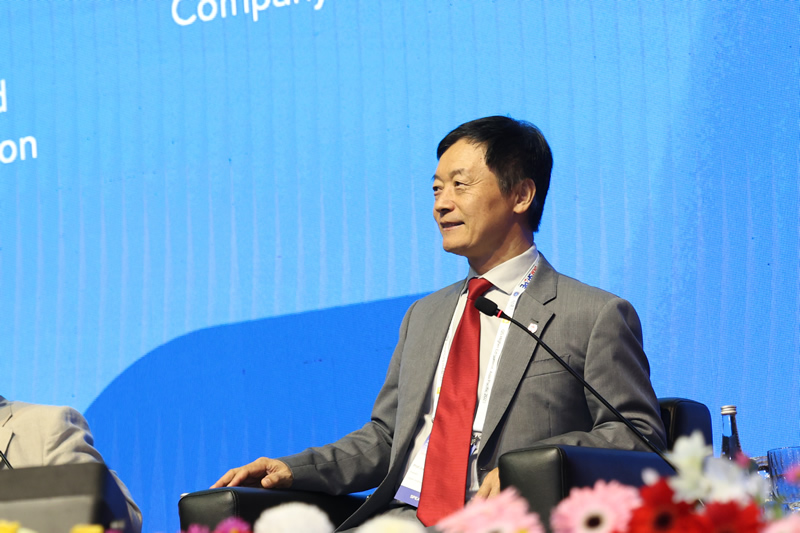
Against a background which has seen the international reputation of Asia’s institutions of higher education steadily enhanced in recent years, the panellists closely examined some of the unprecedented challenges the sector now faces and how success will be gauged in future.
Their exchanges noted the standard measures and how these differ within Asia and in comparison with universities in other parts of the world. They also looked in more detail at areas where it will be vital to adapt to achieve inclusive and sustainable outcomes in times when uncertainty and disruption have become the norm.

A subsequent panel, featuring Professor Joshua Mok, Vice President of Lingnan University, was invited to debate the topic “Quality and quantity: refining and improving international student enrolment”, with a particular eye on student and programme demand and the predominant trends.
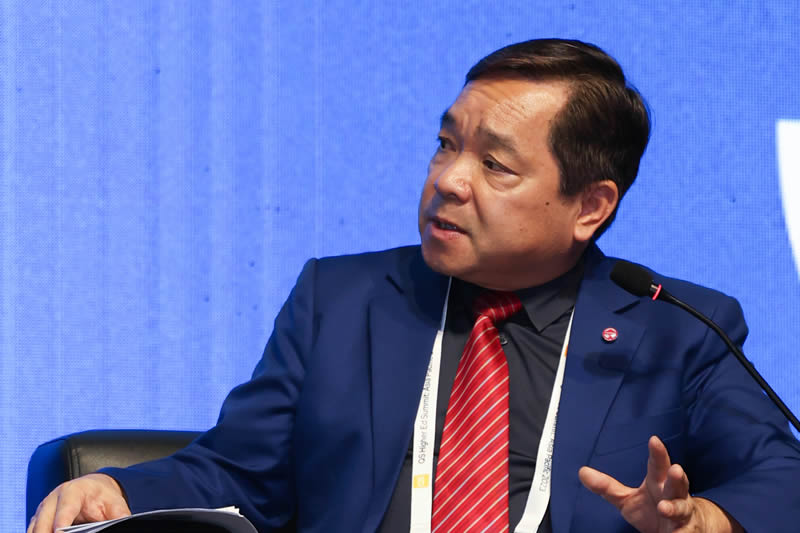
Clearly, Asia is now home to some of the world’s leading universities and pressure for places is growing. However, there is still work to be done to increase the overall intake from neighbouring countries and from outside the region. The panel therefore looked at the reasons for current challenges, ways in which institutions can set themselves apart, the pros and cons of tools like hybrid learning, and best practices for enhancing the all-round experience of international undergraduates and research students.
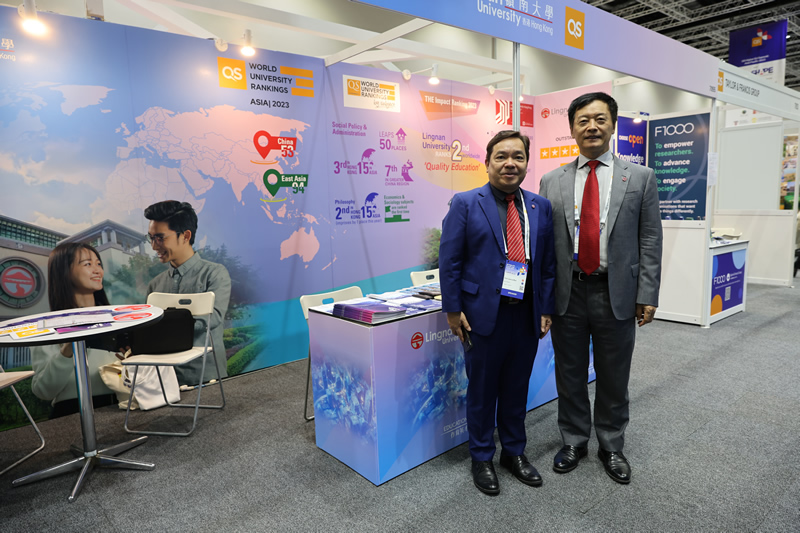
As one way of promoting their recognised strengths in this respect, Lingnan had a special booth at the Summit venue. It attracted plenty of visitors during the course of the event, serving as an additional source of information about past and present research collaborations and international partnership programmes.
Not surprisingly, these ongoing links were also a major subject of conversation among the 500-plus guests at the Gala Dinner held on 7 November, especially after the presentation of QS Star Certificates for certain notable achievements.
Lingnan was one such recipient, winning the highest accolade, the QS Five Stars Plus rating, alongside the University of Wollongong from Australia. The rating system assesses performance in at least seven categories including research, teaching, innovation, inclusiveness, and environmental impact. And, among other things, the results give prospective students of a university’s strengths and priorities.
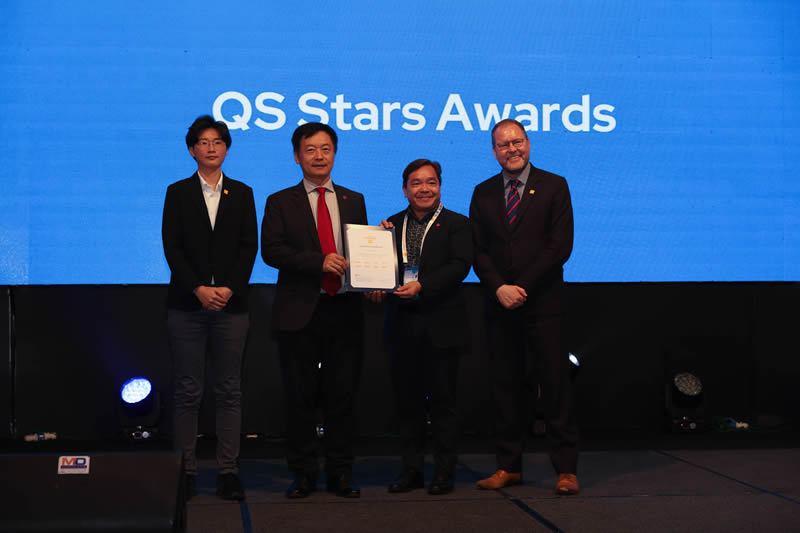
On this occasion, the citation also highlighted Lingnan’s impressive scores for internationalisation, the employability of its graduates, and its commitment to providing an outstanding academic experience.
Professors Qin and Mok were on stage to accept the award and, later, they took the opportunity afforded to discuss possible future collaborations with other leading universities.
“A lot of universities are trying to recruit students and be successful in a crowded market,” said Jessica Turner, Chief Executive of QS. “Generally, it is hard to improve your reputation and rankings, but Asia-Pacific is doing really well.”
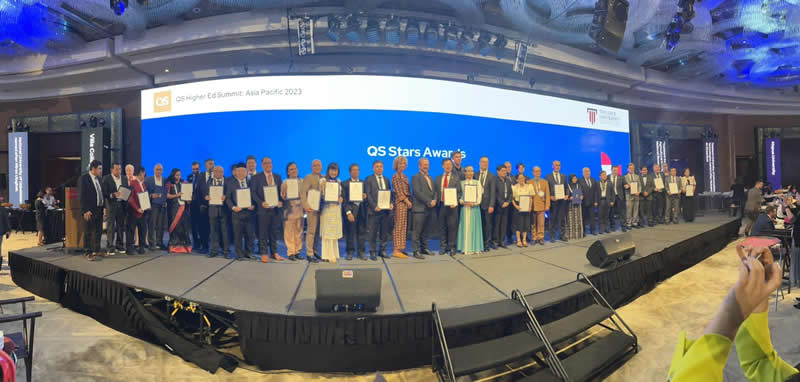
Toward the end of the Summit, both were on stage once again as part of the official handover ceremony to the next hosts. This confirmed publicly that Lingnan has been selected as co-host the QS Higher Education APAC Summit 2024 and host for the post-event aspect of the QS Higher Education APAC Summit 2024, for which Macau University of Science and Technology will take the lead.
“We will be pleased to share our pioneering experience in adapting and evolving in the digital age, in the integration of scientific thinking, and in enhancing the role of internationalisation,” Qin said.
In order to mark this year’s 20th anniversary of the QS World University Rankings, Lingnan also sponsored a celebratory dinner on 9 November 2023.
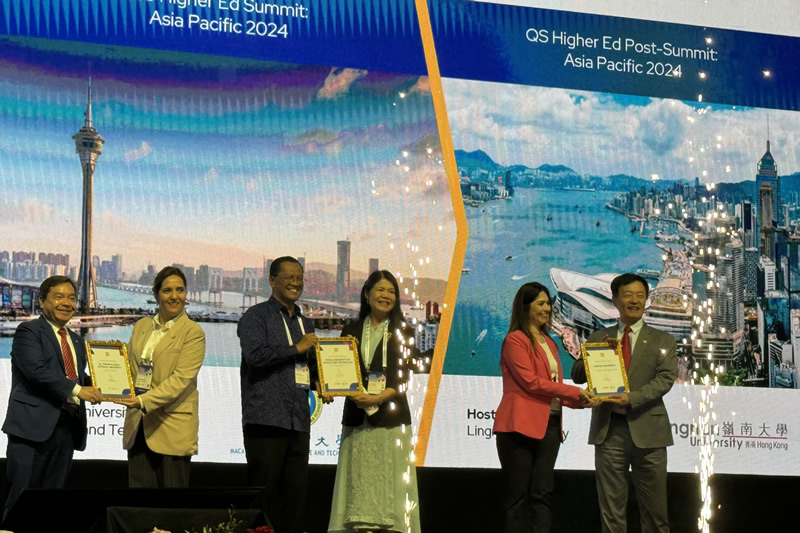
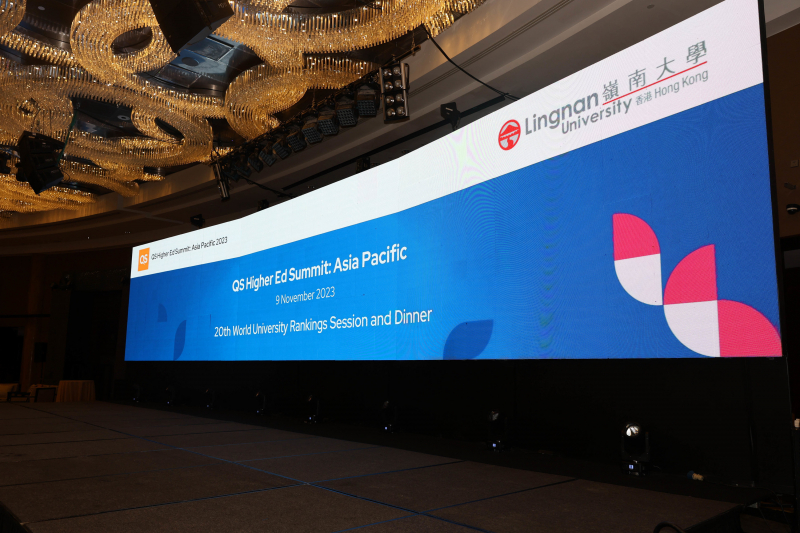
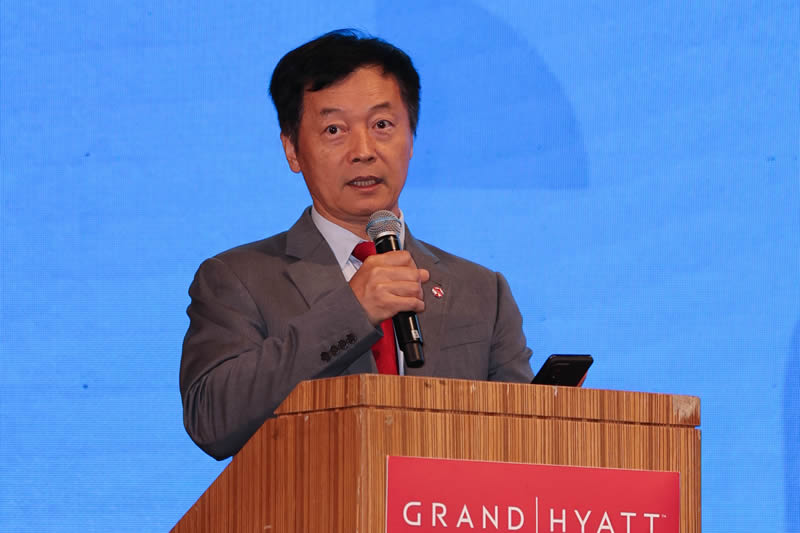
“I would like to express gratitude for the opportunities that QS has provided for academic institutions around the world not only to learn from each other, but also to strive towards excellence in our own ways,” Qin said in his introductory remarks to the assembled guests. “These interactions are crucial for exchanging ideas, promotion collaborations, and ultimately driving innovations in higher education.”
Click to view Photo Gallery